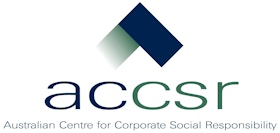Research has shown that organisations which experience major CSR-related supply chain shocks can suffer up to a 20% fall in share price, which can take up to two years to recover, with severe damage to reputation and the business bottom line. At the same time, suppliers falsifying records for an audit is not uncommon throughout Asia, where many Australian companies have their operations.
Child and slave labour, occupational health and safety and environmentally unsustainable practices are all risks in the supply chain. Do you know what happens in your organisation’s supply chain? Do you know how to engage your sub-tier suppliers? Do you measure and monitor practices?
Recent developments in sustainability reporting mean organisations will need to understand the risks and effectively monitor their supply chain. For many sustainability reporters this will be a considerable challenge. Ensure you, your organisation and your teams are up to the task.
Workshop objectives
Practitioners and teams will develop key CSR knowledge:
- Why and how your supply chain should be reported
- Common supply chain risks related to CSR
- Best practice in measuring and auditing supply chain
- What is material for you to report – how far up and down the supply chain
- GRI G4 supply chain requirements
- Supply chain in integrated reporting – risk assessment, value creation.
Publish your content with EB Publishing
It's about who you reach. Get your news, events, jobs and thought leadership seen by those who matter to you.




